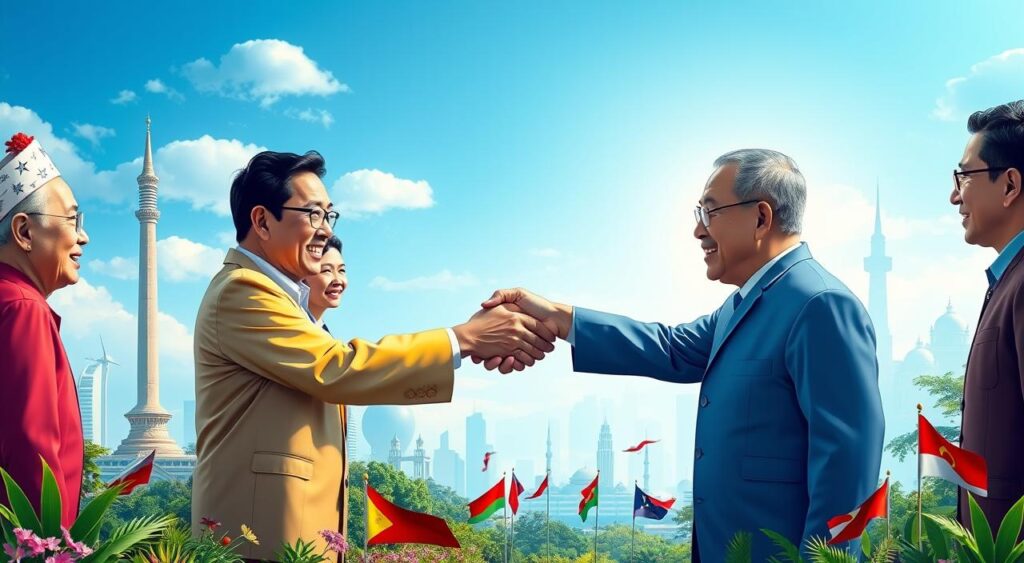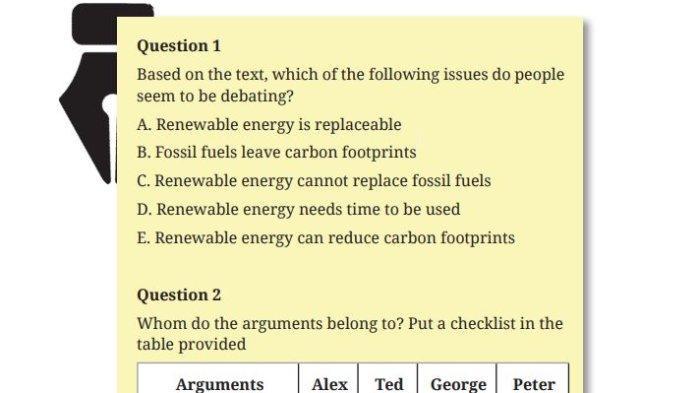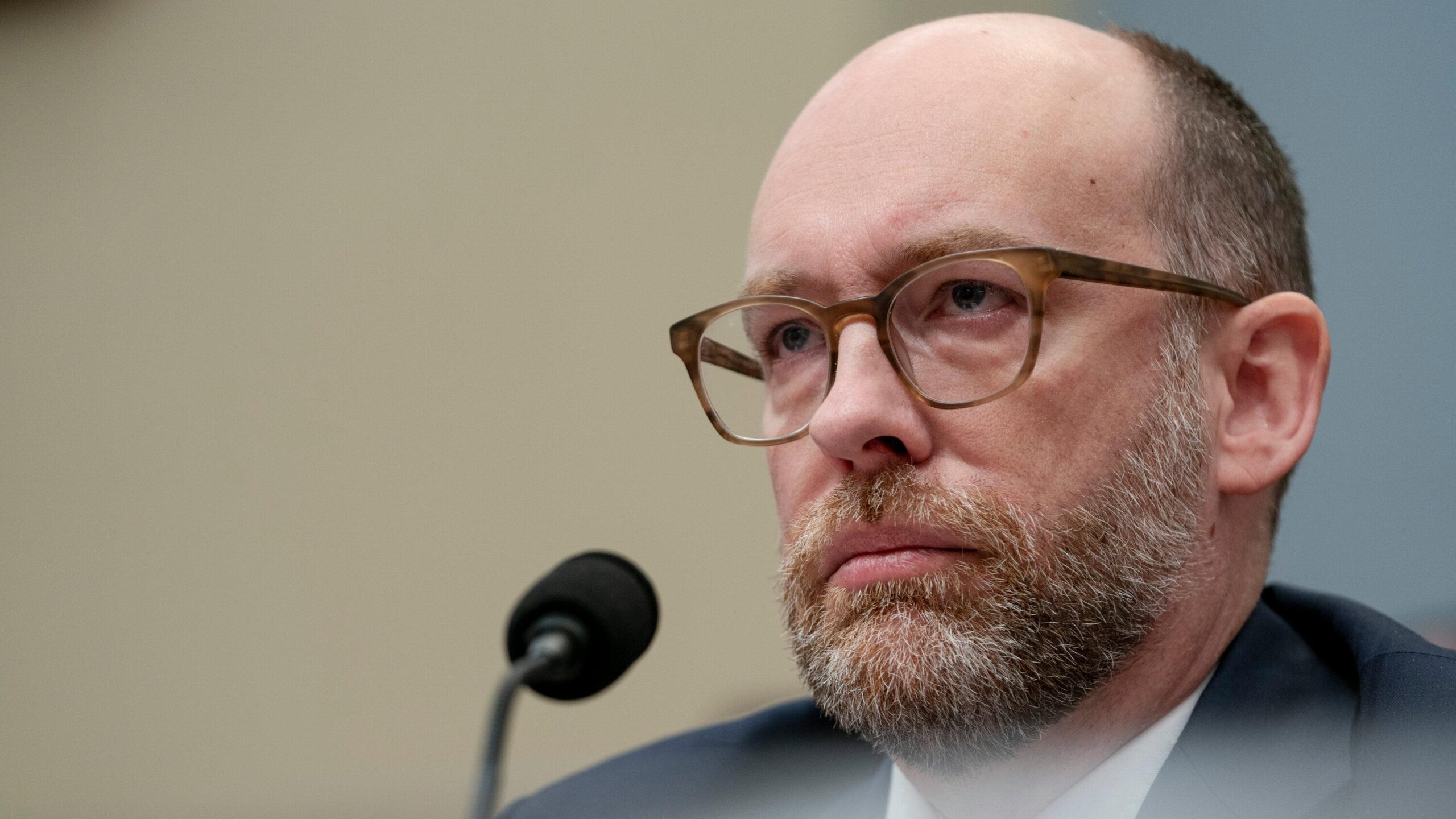The National Assembly of Vietnam has chosen Army General Cuong as the new president. This move marks a big change in the country’s leadership. General Cuong, known for his military experience, takes over at a time when the military’s role in governance is growing.

Key Takeaways
- The National Assembly has appointed Army General Cuong as the new president of Vietnam.
- General Cuong’s appointment represents a shift in the balance of power, with the military playing a more prominent role in the country’s leadership.
- The transition raises questions about the implications for Vietnam’s national security and foreign policy priorities.
- Domestic policies and human rights concerns will likely be areas of focus for the incoming administration.
- The public’s reaction and expectations for the new president will be closely watched in the coming months.
The National Assembly has appointed Army General Cuong as the new president amid
The National Assembly has chosen Army General Cuong as Vietnam’s new president. This change marks a big shift in Vietnam’s politics. It happens as the country faces tough challenges at home and abroad. These include the need for constitutional reforms and keeping political stability.
This move towards military leadership shows Vietnam’s efforts to tackle national security issues. It also aims to boost its global standing. The National Assembly’s choice highlights the role of vietnam politics and the military in shaping the nation’s future.
With this new era of government transition, Vietnam will focus on smooth constitutional reform. It aims to balance the needs of both civilian and military groups. Successfully managing this balance is key to Vietnam’s long-term political stability.
| Key Factors | Importance |
|---|---|
| Constitutional Reforms | Aligning the government structure with the evolving needs of the nation |
| Military Involvement | Ensuring national security and stability during the transition period |
| Civilian-Military Balance | Maintaining a checks and balances system to safeguard democratic principles |
As Vietnam starts this new chapter, it faces both challenges and opportunities. These will shape the country’s politics, economy, and society for years to come.
“The appointment of Army General Cuong as the new president represents a significant shift in Vietnam’s political dynamics. It will be crucial for the country to navigate this transition in a manner that preserves democratic principles and strengthens its position on the global stage.”
Vietnam’s Political Transition: Implications for National Security
The appointment of Army General Cuong as Vietnam’s new president has sparked interesting questions. It makes us think about the military’s role in the country’s leadership. As Vietnam goes through this change, we see how it affects national security and the need for constitutional reform.
Constitutional Reforms and the Role of the Military
The move to a military-backed presidency might change how the military works in government. There could be talks about changing the constitution. This would help figure out the right balance between civilian and military power.
This careful process is important. It ensures the military’s role in keeping the country safe fits with democratic values.
Challenges in Maintaining Political Stability
Keeping the country stable will be a big task for the new government. They need to meet the needs and worries of people inside and outside Vietnam. They must handle this carefully, balancing security needs with the desire for more openness and honesty.
| Potential Challenges | Proposed Solutions |
|---|---|
| Ensuring a smooth transition of power | Transparent communication and inclusive decision-making processes |
| Addressing concerns from civil society and human rights organizations | Engaging in constructive dialogue and demonstrating a commitment to reform |
| Maintaining regional and global diplomatic relations | Strengthening regional alliances and reaffirming Vietnam’s commitment to international norms |
As Vietnam starts this new journey, finding the right balance is key. The new government must handle military leadership, national security, constitutional reform, and political stability carefully. Getting this right is crucial for Vietnam’s future and its place in the world.
“The military’s role in governance must evolve to reflect the changing needs of the nation, while preserving the core principles of democratic accountability.”
General Cuong’s Military Background and Rise to Power
Army General Cuong’s journey to the presidency shows the military’s growing power in Vietnam. His long career in the armed forces highlights the military’s key role in the country’s leadership.
Cuong started his career as a young officer, showing great strategic and tactical skills. He moved up the ranks, gaining experience in leading complex operations and understanding the defense establishment’s complex dynamics.
- Commissioned as a second lieutenant in the Vietnam People’s Army in the 1980s
- Commanded a battalion during the Sino-Vietnamese War in the late 1970s
- Promoted to brigadier general in the 1990s, leading a division in the Central Highlands
- Appointed as deputy chief of the General Staff of the Vietnam People’s Army in the early 2000s
- Became the commander of the Vietnam People’s Army in 2015, a position he held until his presidential nomination
Cuong faced many challenges on his path to power. He had to navigate the complex politics of the Communist Party and the military. Yet, his military leadership and strategic decision-making made him a strong presidential candidate.
Now as Vietnam’s president, Cuong’s military background will shape the country’s leadership. This is especially true for military leadership and government transition.
Vietnam’s Foreign Policy Outlook Under the New Leadership
With Army General Cuong leading Vietnam’s new administration, the country’s foreign policy is set for a big change. Vietnam will focus more on building strong alliances and partnerships. This move comes as the geopolitical scene and security issues in the Asia-Pacific area change.
Strengthening Regional Alliances and Partnerships
The new government wants to get closer to its regional friends. This means:
- Building stronger bonds with Japan, South Korea, and India to improve regional partnerships and security.
- Boosting economic and trade ties with Southeast Asia to enhance vietnam foreign policy and regional growth.
- Handling the South China Sea disputes carefully to keep national security in check.
Vietnam hopes to become a major player in the Asia-Pacific by strengthening these alliances. This will help protect its interests and influence.

“Vietnam’s new leadership will need to carefully balance its regional relationships to maintain stability and promote its national interests in the face of growing geopolitical tensions.”
The change in Vietnam’s leadership is a chance for the country to update its vietnam foreign policy and boost its regional role. As General Cuong starts his term, the world will watch how Vietnam’s regional partnerships and national security evolve.
Economic Priorities for the Incoming Administration
General Cuong’s new administration is ready to guide Vietnam’s economy. The country has seen fast growth lately. The new leaders aim to keep this growth going while tackling new problems.
They will focus on government policies that help political stability. This will make the vietnam economy grow better. They might make changes to make things run smoother, improve roads, and draw in more foreign money.
- Promoting Sustainable Economic Development: They might start projects that grow the economy but also protect the environment and help people. This way, everyone can enjoy the benefits of growth.
- Diversifying Trade Partnerships: They could work on keeping good trade ties and finding new markets. This is to not rely too much on one country for trade.
- Investing in Strategic Industries: They might put money into areas like tech, green energy, and high-value making. This could make Vietnam a leader in new fields.
The new government wants to keep Vietnam’s economic growth strong. They aim to make Vietnam a successful and growing nation worldwide.
“Our economic priorities will be guided by a steadfast commitment to political stability and sustainable development, ensuring that the fruits of our nation’s progress are shared by all Vietnamese citizens.”
As Vietnam faces new challenges and chances after the pandemic, everyone will watch what the new leaders do. They plan to use government policies that support political stability and boost the vietnam economy. They want to make Vietnam a key player in the region’s economy.
Vietnam’s Human Rights Record and Domestic Policies
Vietnam is changing with the new president, Army General Cuong. The world is watching how they handle human rights and domestic policies. The new team must tackle concerns from international organizations about freedom and minority rights.
Addressing Concerns from International Organizations
Vietnam’s human rights have been under the microscope for a long time. Groups like Amnesty International and Human Rights Watch have pointed out issues. These include unfair arrests, limits on speech, and silencing political voices.
The Cuong administration must show they care about universal human rights standards. They need to work well with international organizations to fix these problems.
- Establish transparent and inclusive mechanisms for dialogue with civil society and human rights groups.
- Implement legal reforms to ensure the protection of civil liberties and political freedoms.
- Ensure that minority groups, such as ethnic and religious minorities, are afforded equal rights and opportunities.
The Cuong administration’s actions on domestic policies will show their dedication to democracy. It will also show if they are ready to work with the world on human rights.
“The true measure of a nation’s standing is how it treats its weakest members.”
The Impact of Military Leadership on Vietnam’s Government
Army General Cuong’s appointment as Vietnam’s president is a big deal. It changes how the country is run and the power between civilians and the military. This shift shows how the military’s role is growing in Vietnam’s politics.
Balancing Civilian and Military Interests
General Cuong, as president, must balance civilian and military needs. He will have to make sure the government listens to both sides. This means working well together between the military and civilians.
Getting this balance right is key to keeping peace and making everyone happy. It’s about using the best of both worlds without causing trouble.
| Civilian Interests | Military Interests |
|---|---|
| Transparency in government operations | Maintaining national security and defense capabilities |
| Prioritizing economic development and social welfare | Preserving the military’s influential role in decision-making |
| Protecting civil liberties and human rights | Securing adequate funding and resources for the armed forces |
As Vietnam goes through this government transition, good military leadership is key. It’s about balancing civilian and military interests for the country’s future stability.
Public Reaction and Expectations for the New President
The appointment of Army General Cuong as Vietnam’s new president has sparked a lot of interest and debate. People across the country are watching the political change closely. They want to know how it will shape the nation’s future.
Some are cautiously optimistic, while others have concerns. They worry about how military leadership might influence government policies and priorities.
Regional and international observers are also keeping a close eye on Vietnam. They’re interested in how the leadership change will impact the country’s foreign policy. There’s hope that General Cuong’s military background will boost national security. But, there are also worries about the balance between civilian and military interests in the government.
As General Cuong’s administration begins, the Vietnamese public is eager to see his agenda. They hope for continued economic growth and better living standards. They also want Vietnam to play a bigger role on the world stage.
However, there’s a desire for the new leadership to tackle long-standing issues. People hope for improvements in human rights and democratic reforms. This would help Vietnam meet international standards.


